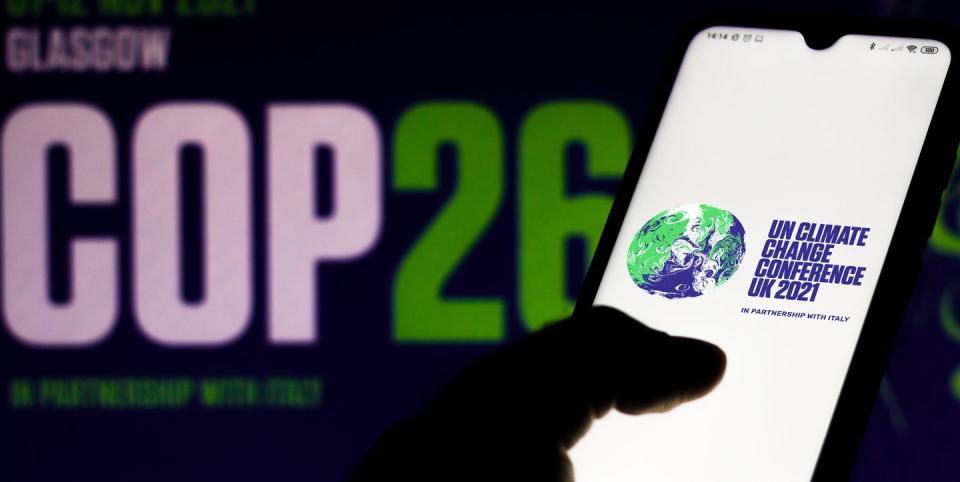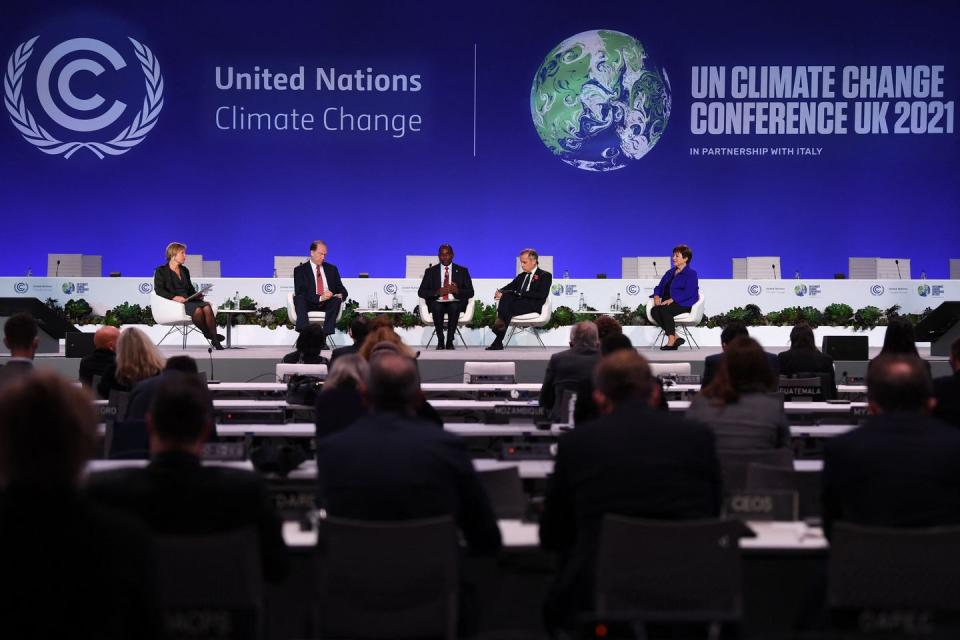What actually is COP26? Here's everything you need to know...

Whether or not you've been closely following the COP26 summit, or are just vaguely aware of it from a scroll on socials, the heavy subject matter can make climate change feel daunting – especially with the increasingly negative press around the future of the planet.
It may be reassuring to know then, that world leaders are doing something to help protect the planet, and it all comes down to what's decided at summits like COP26.
With that in mind, what actually is COP26? Who's attending COP26? And why is COP26 so important? We took a deep-dive into the event to find out...
What is COP26?
COP26 is an event organised by the United Nations where world leaders come together to discuss climate change and how to tackle it.
COP stands for Conference of the Parties, and is made up of world leaders from countries that signed the United Nations Framework Convention on Climate Change (UNFCCC) treaty in 1994. Since 1994, there have been 25 COP summits, which is why this year's is called COP26. The last COP summit was held in Madrid in 2019, where environmental activist Greta Thunberg addressed world leaders with a powerful speech.

Why is COP26 important?
With the world getting hotter each year (due to fossil fuel emissions), rising sea levels and ice caps melting, it's impossible to avoid the conversation about climate change. Not only that, but the effects of climate change are more prevalent than ever before, and we're seeing this play out in front of our very eyes in the form of extreme weather events like heatwaves, forest fires and floods.
In fact, the past decade was the warmest since records began, and scientists and experts have been warning us that if climate change is not tackled quickly, Earth will reach a point beyond repair.
Who's at COP26?
COP26 was originally due to take place in November last year, but was delayed until this year due to the COVID-19 pandemic. It's being held in Glasgow between 31 October and 12 November, and more than 100 world leaders are expected to attend.
Some of the countries attending the COP26 summit are Australia, Canada, France, South Korea, Switzerland and more. A few countries are not attending this year, these include Russia, Brazil and Mexico.
Notably, the leader of China (the world's most populous country and the world's biggest emitter of fossil fuel carbon dioxide emissions) is not attending. President Xi Jinping has not left the country since the pandemic began, although it's likely he will make a video appearance. In Jinping's place, China's vice-environment minister and climate envoy are expected to attend.

What have COP26 leaders committed to?
Back in 2015, at the COP21 summit in Paris, world leaders committed to the Paris Agreement. By signing the agreement, nations were required to reduce the amount of harmful greenhouse gasses produced, increase renewable types of energy and keep global temperature increase "well below" 2C. On top of that, leaders committed to reviewing progress of the agreement every five years, and to spend $100 billion dollars a year in climate finance to help poorer countries (which tend to pollute less yet experience the worst effects of climate change).
At the last COP summit in 2019, world leaders made an agreement to cut carbon dioxide emissions, with each nation committing to plan how to cut their carbon emissions in time for this year's summit in Glasgow.
So far this year, more than 100 leaders have promised to end and reverse deforestation by 2030. Deforestation is one of the major factors in climate change, as it depletes the number of trees (which, as we learnt in science class, absorb CO2). The move has been welcomed by experts, although some have raised concerns that a similar promise was made at the COP summit back in 2014, which had little effect.

Speaking about the decision to end deforestation, UK prime minister Boris Johnson, who is hosting the global meeting, said: "We have to stop the devastating loss of our forests, [and] end the role of humanity as nature's conqueror, and instead become nature's custodian."
As well as ending deforestation, more than 40 world leaders have pledged to speed up affordable and clean technology (aka 'green technology') worldwide by 2030. This includes ensuring that clean power becomes the most affordable and reliable option worldwide, zero-emission vehicles become the new norm and that sustainable agriculture becomes widely adopted by farmers.
Many countries have also agreed to a net-zero emissions goal by 2050, which aims to keep global temperature rises below 1.5C. Speaking on the topic, Boris Johnson warned the 1.5C target is the difference "between life and death."
On top of these agreements, both the US and the EU have plans to cut the use of methane – a powerful greenhouse gas that comes from fossil fuel extraction and livestock farming. One way to ensure this is achieved is to encourage the public to eat less meat and dairy products, which according to the UN’s Food and Agricultural Organisation, accounts for roughly 14.5% of global greenhouse gas emissions.
You Might Also Like

